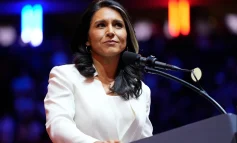
|
| Lynch. |
WASHINGTON — President Obama on Saturday picked Brooklyn federal prosecutor Loretta Lynch to be the next U.S. attorney general who, if confirmed by the Senate, would be the first Black woman in the job.
Lynch would replace Eric Holder, the first Black attorney general, who has held the job since Obama took office in 2009. She was among several candidates Holder had recommended to succeed him.
Obama said he hoped the Senate would not delay in confirming Lynch, who he said had distinguished herself as tough and fair in her two stints as the U.S. attorney in the Eastern District of New York.
Obama’s selection of Lynch is a departure from his tendency to put candidates with whom he has a long personal history into top jobs. It is the first major personnel change he has announced since Republicans won control of the Senate in congressional elections on Nov. 4. Holder said in September that he planned to step down.
Senate Republican leader Mitch McConnell, who is slated to become majority leader, said Lynch should be considered by the new Republican-controlled body next year.
“Ms. Lynch will receive fair consideration by the Senate. And her nomination should be considered in the new Congress through regular order,” he said in a statement.
Holder, one of Obama’s closest allies, has had a rocky tenure as attorney general. He clashed frequently with congressional Republicans over gun control, same-sex marriage, and a desire to try terrorism suspects in civilian rather than military courts.
Lynch, a Harvard-trained lawyer from North Carolina, has stirred little controversy during her decades as a prosecutor.
The next attorney general will face many challenges, including managing counter-terror initiatives aimed at “Islamic State” militants, balancing privacy rights against government surveillance efforts and deciding whether to bring charges in connection with the shooting death of an unarmed Black teenager by a white police officer in Ferguson, Missouri.
Lynch’s deep experience in civil rights, terrorism and corporate fraud cases, and her work leading a committee that advises the attorney general on policy issues, could result in continuity with Holder.
Holder has built much of his legacy on trying more terrorism suspects in federal courts and on civil rights issues, as he has pushed to enforce civil and voting rights laws and to reduce sentences for low-level drug offenders.





Leave a Reply